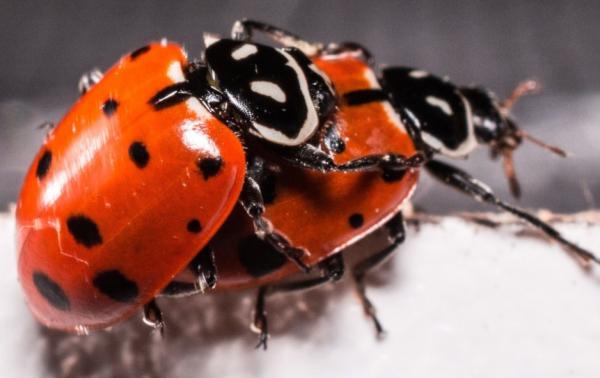This topic is somewhat off the beaten path, but when you delve a bit deeper a new research study on the penetration mechanics of the beetle penis- its bending stiffness gradient compounded by its soft tip (pictured below) – could actually hold some promise in the medical device realm.


(Photo Credit: Science Advances, click here).
Apparently, penetration without buckling or rupturing is a hard task mechanically-speaking. Being firm enough for insertion, but soft enough as not to succumb to buckling under compressive stress is a feat of engineering especially with indwelling catheter placement and function. Or, can also pose issues with respect to the human penis when facing erectile dysfunction and impotence, for example.
This notion that the intromittent organ of the cassidine beetle, known for its hyper-elongated structure more accurately deemed a “flagellum” than a penis, could hold some answers for potential medical applications set scientists on a path of discovery. Since the coevolved female duct, termed spermatheca, is tunnel-like, traditionally convoluted and an often coiled structure, it is quite a tough endeavor for the male to succeed without damaging its fragile organ.
With half a relatively stiff base and the rest a softer apex, the cylindrical shape and tapered tip allowed the research team to demonstrate that the seemingly simple flagellum penetration involves significant mechanisms of action and velocity. Their work studying its bending stiffness gradient helped garner a firmer grasp on why despite its fragility, breakage is a rarity.
For copulation, the beetle “penis” achieved rave performance reviews much attributed to its hard base and soft tip (composed of parallel hard and soft sides), along with its ability to take on the shape of the female’s genital tubing which is highly spiraled.
The process is featured here, courtesy of Science Advances, click here to reference source:


Could the same hold true if somehow extrapolated for catheter usage or an alternative medical device?
It is the shape, not necessarily the material that won the day with respect to dispersion of penetration forces by producing the bending stiffness gradient. To further appreciate the complexity of the biomimetics, engineering and physics, check out the article in Science Advances entitled “Penetration mechanics of a beetle intromittent organ with bending stiffness gradient and a soft tip.”
Part of the issue in medical devices with catheters, in particular, is they have to be able to be malleable enough to reach remote, often tortuous locales but robust enough to withstand insertion and collapse so blood or fluids (e.g. medications) can readily flow unimpeded. Existing ones can sometimes migrate or somehow get obstructed. These consequences are problematic in causing secondary issues.
Due to their diverse uses and the untoward health implications that can arise with catheters, the researchers encourage taking inspiration for future medical design from the self-controlling biomechanically dynamic beetle intromittent organ system.
Given that an ACSH colleague often refers to me as the “Princess of the Perineum” due to the success of such articles as Stuff Not To Do With Your Penis, Is Public Pooping a New Trend?, Vagina: Inanimate Objects in Orifices, Big (Or Not So) News In Condoms to name a few and the fact I lack the discomfort others have of broaching such important public health topics, I could not disappoint with selecting this one. Heck, if medical innovation that can expedite the cure of a patient or minimize their suffering comes in the shape of a beetle penis or cow vagina, so be it. Learn from nature’s design.




